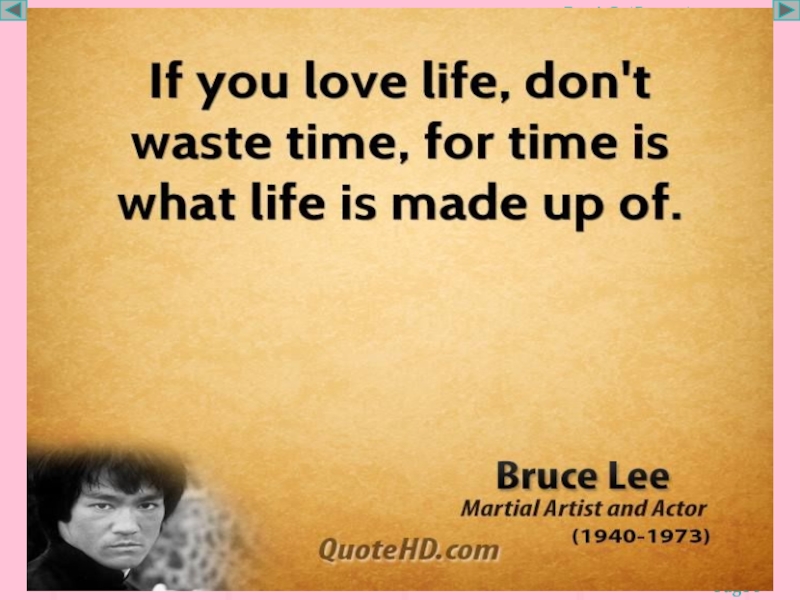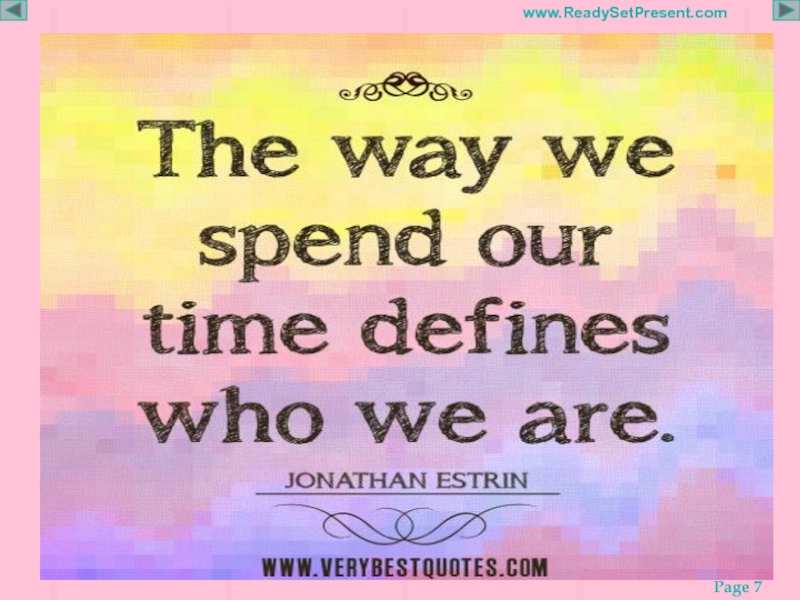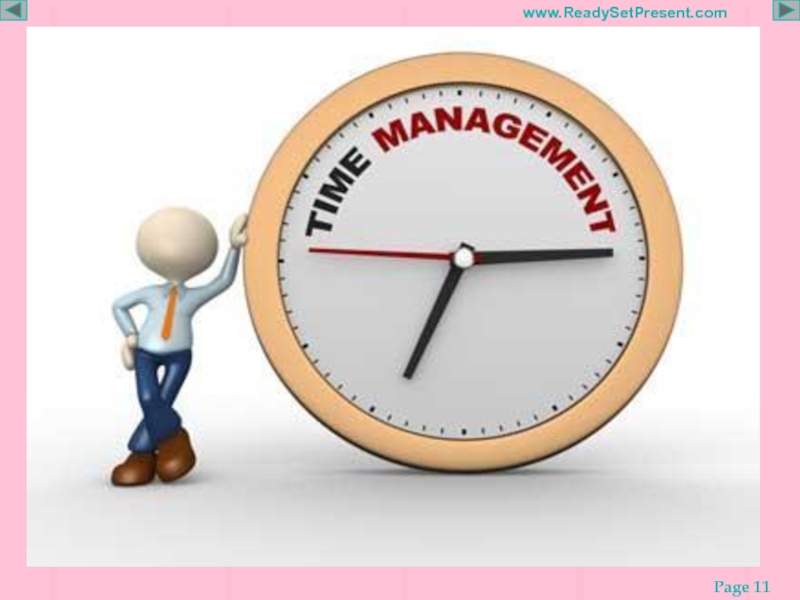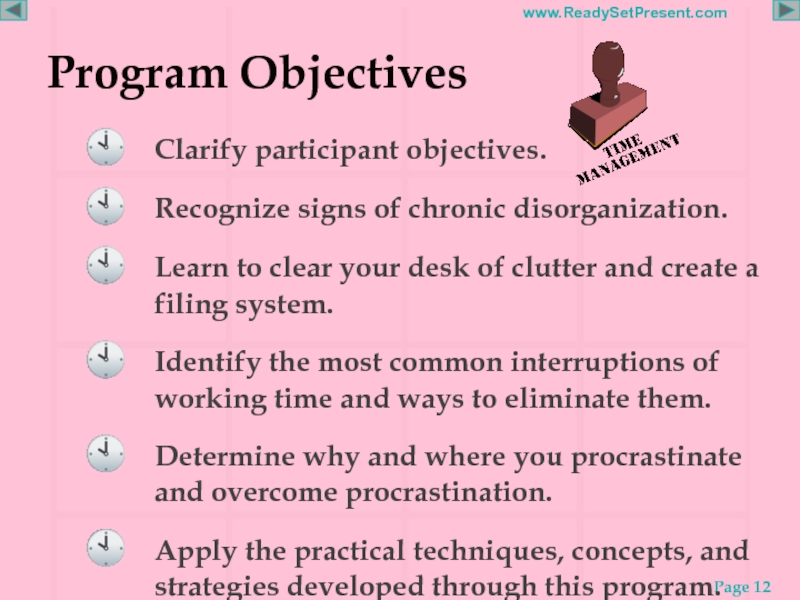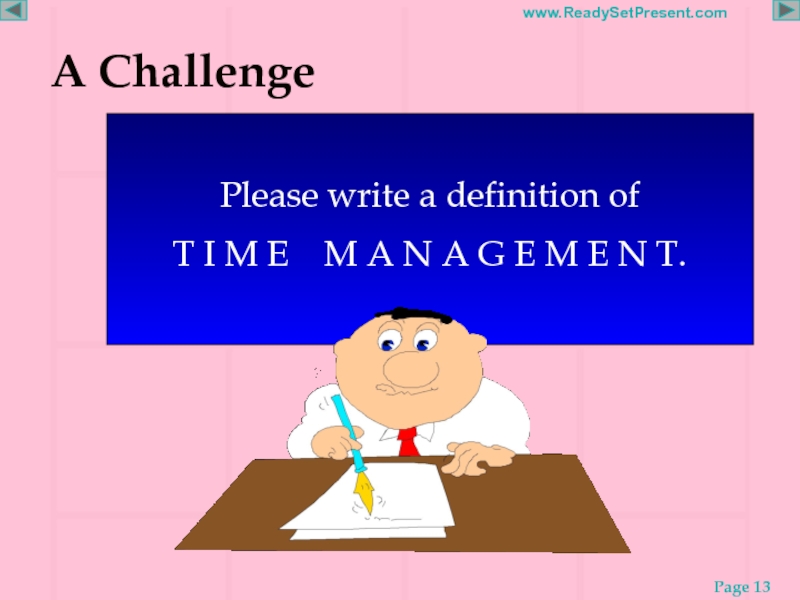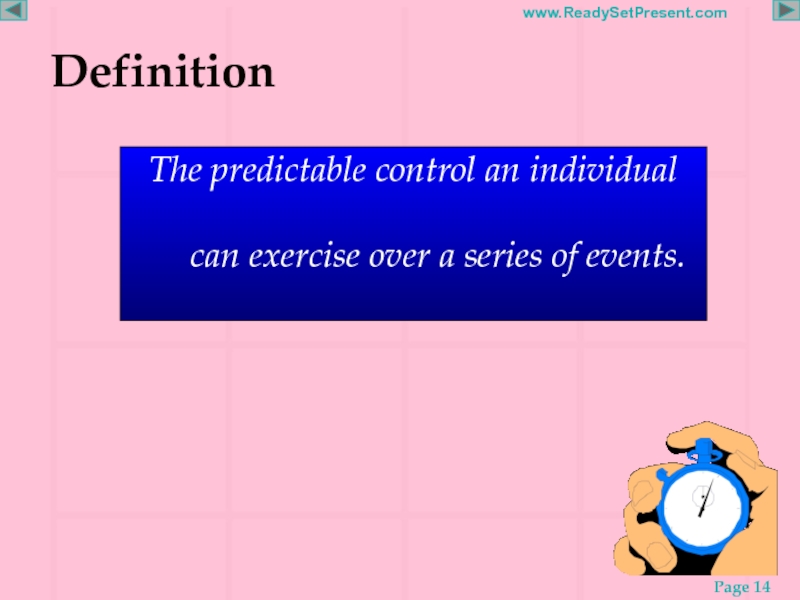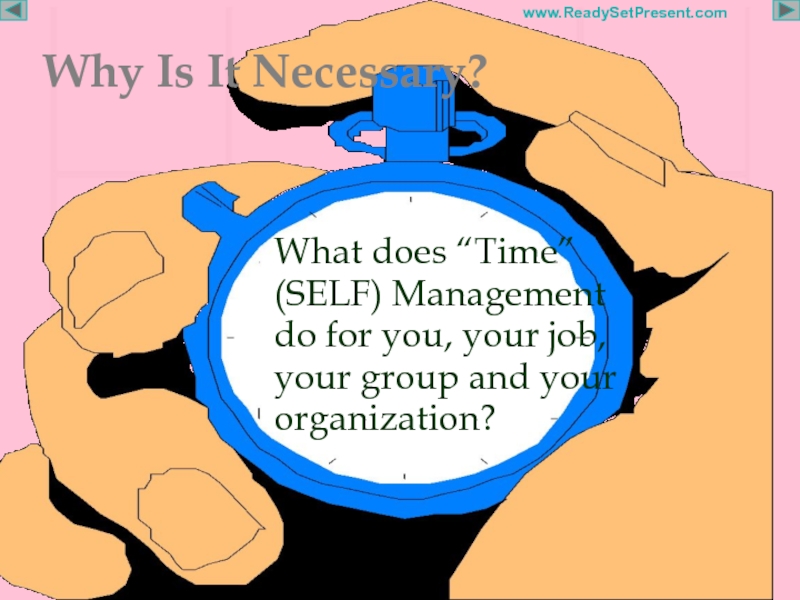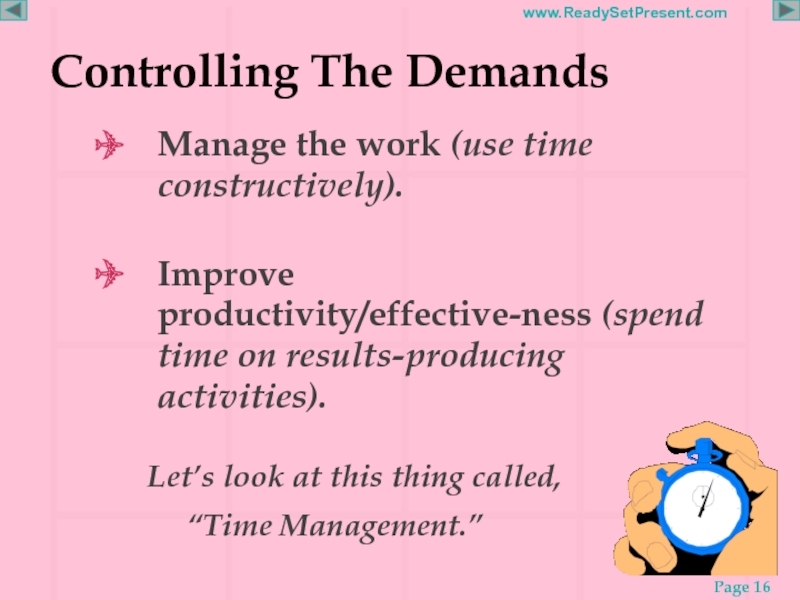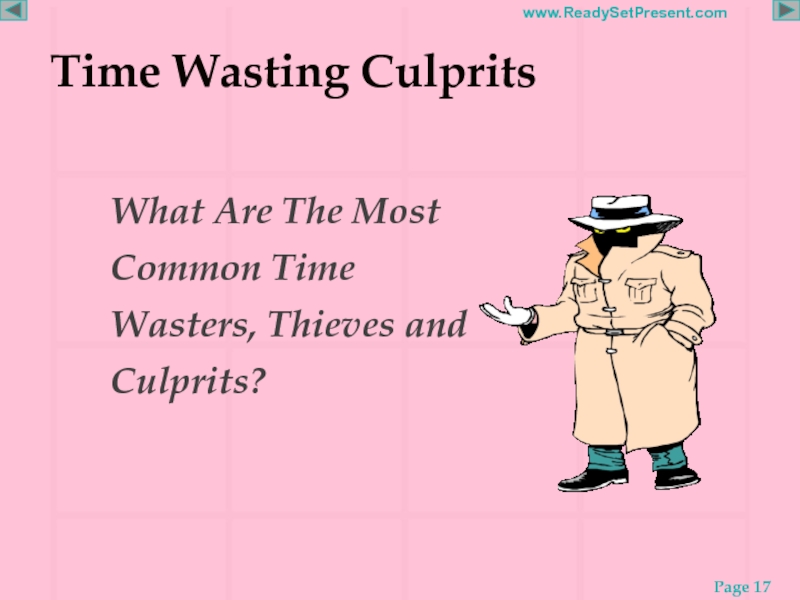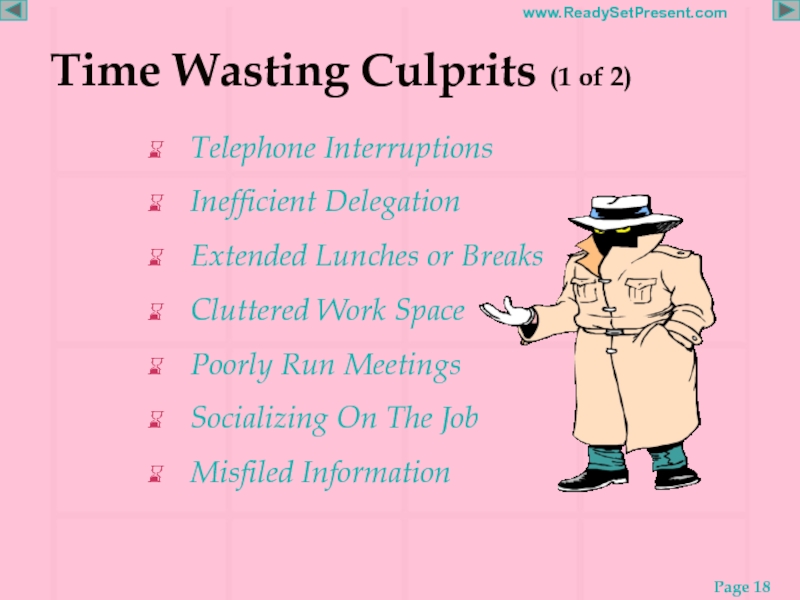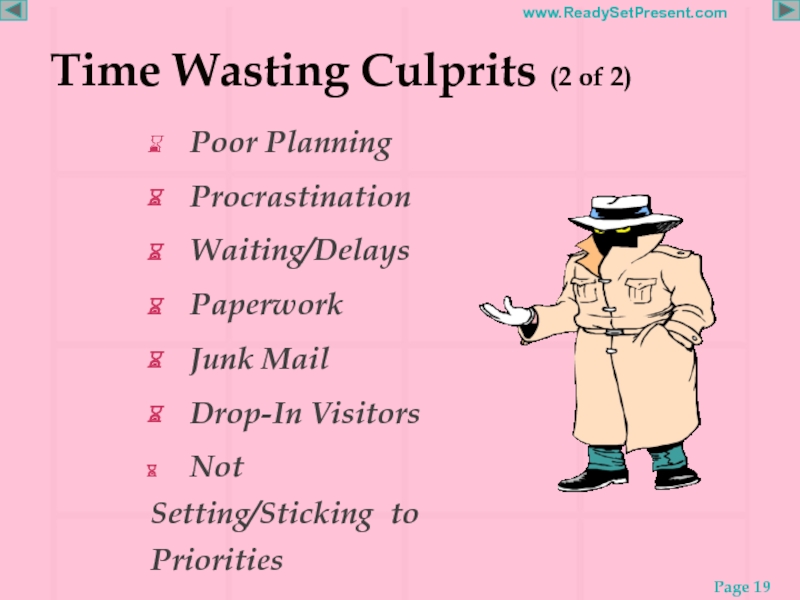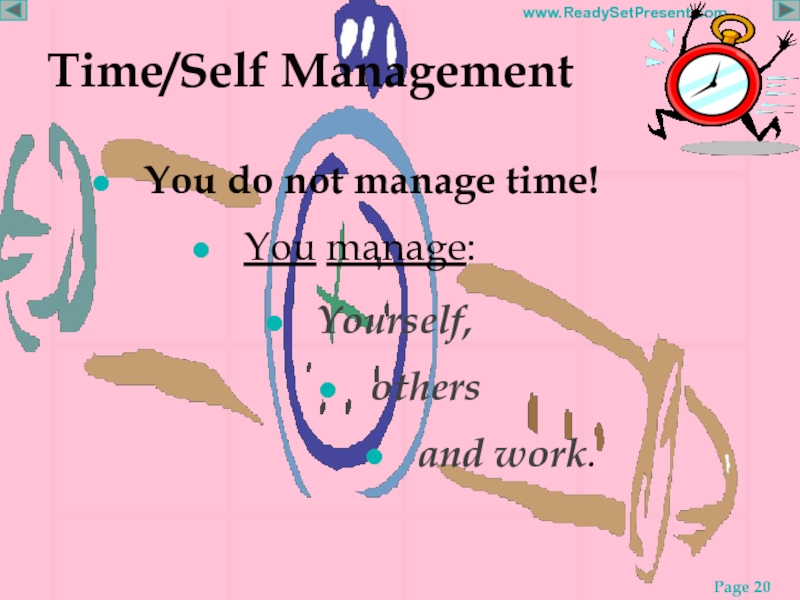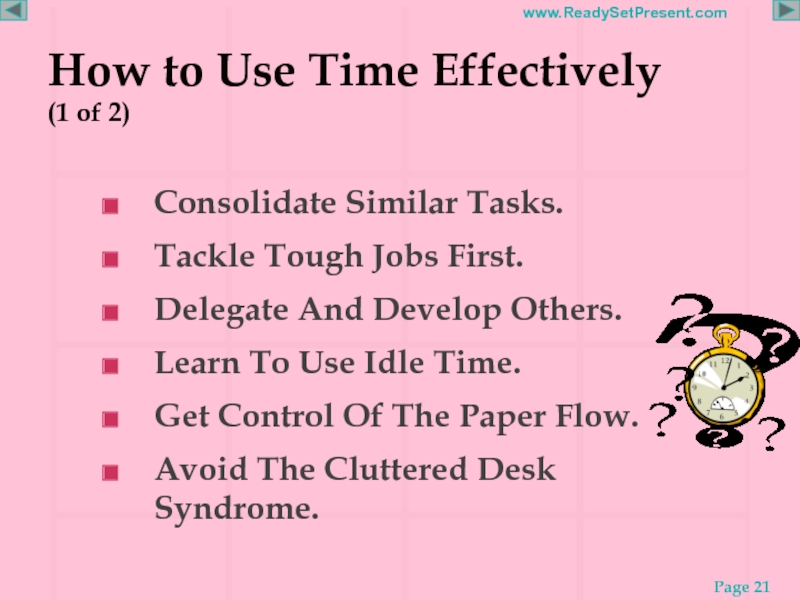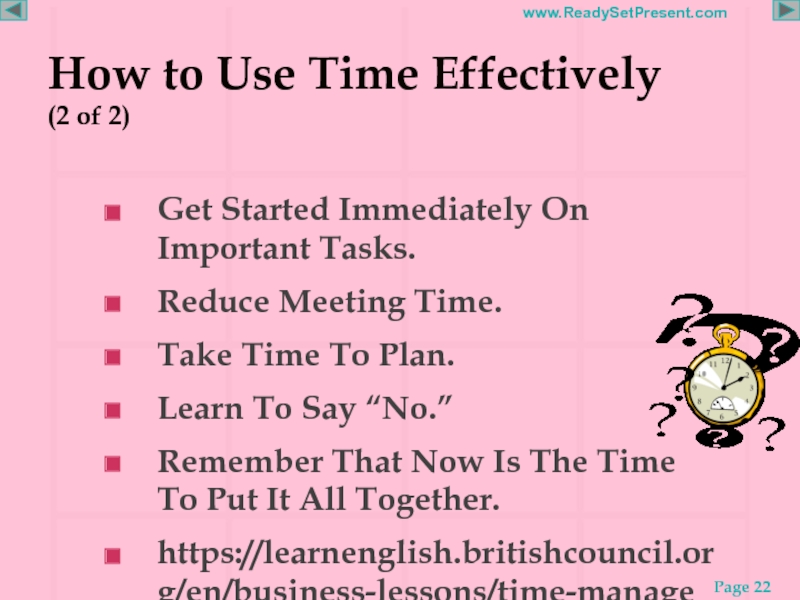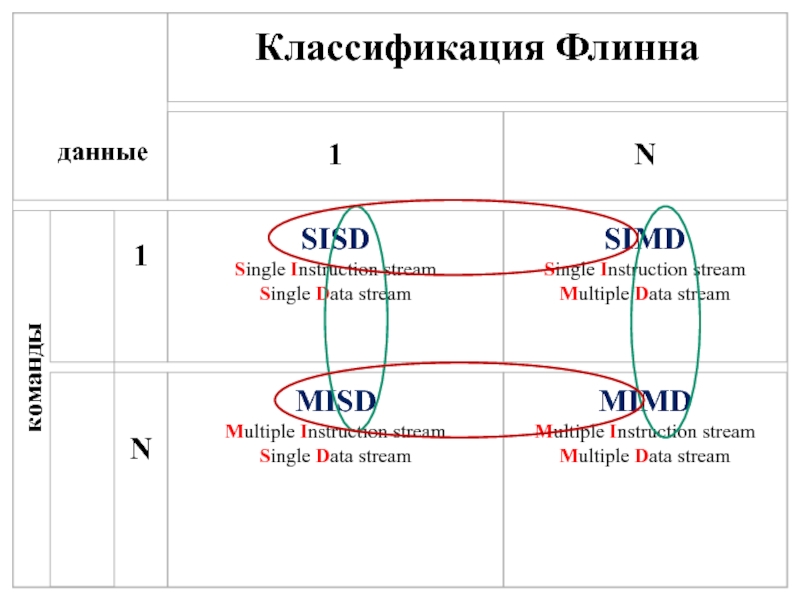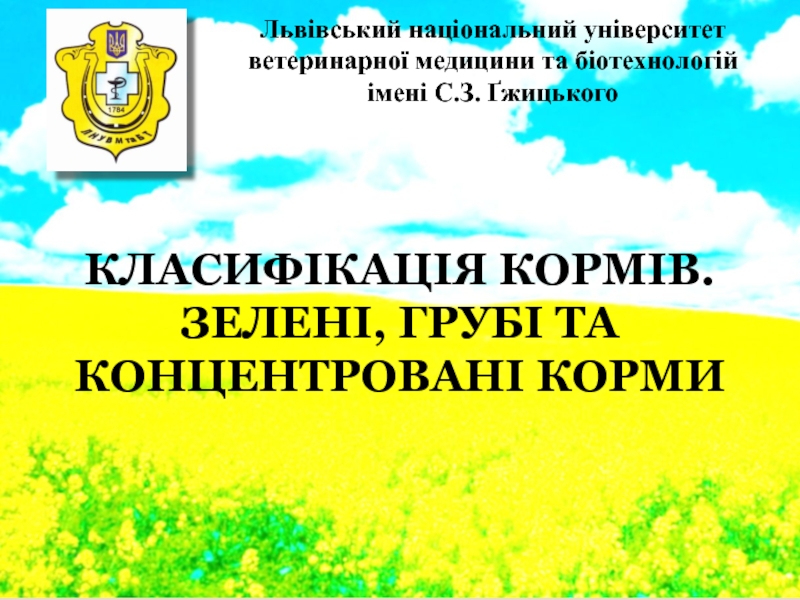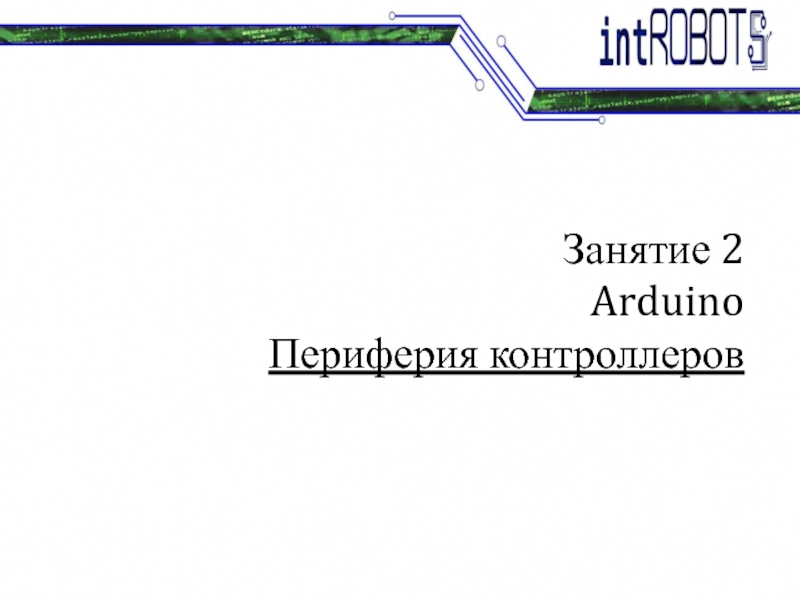- Главная
- Разное
- Дизайн
- Бизнес и предпринимательство
- Аналитика
- Образование
- Развлечения
- Красота и здоровье
- Финансы
- Государство
- Путешествия
- Спорт
- Недвижимость
- Армия
- Графика
- Культурология
- Еда и кулинария
- Лингвистика
- Английский язык
- Астрономия
- Алгебра
- Биология
- География
- Детские презентации
- Информатика
- История
- Литература
- Маркетинг
- Математика
- Медицина
- Менеджмент
- Музыка
- МХК
- Немецкий язык
- ОБЖ
- Обществознание
- Окружающий мир
- Педагогика
- Русский язык
- Технология
- Физика
- Философия
- Химия
- Шаблоны, картинки для презентаций
- Экология
- Экономика
- Юриспруденция
THE VALUE OF TIME презентация
Содержание
- 1. THE VALUE OF TIME
- 10. VIDEO https://www.youtube.com/watch?v=mF4vj5g7UUE
- 12. Program Objectives Clarify participant objectives.
- 13. A Challenge Please write a definition
- 14. Definition The predictable control an individual can exercise over a series of events.
- 15. Why Is It Necessary? What does “Time”
- 16. Controlling The Demands Manage the work (use
- 17. Time Wasting Culprits What Are The Most Common Time Wasters, Thieves and Culprits?
- 18. Time Wasting Culprits (1 of 2) Telephone
- 19. Time Wasting Culprits (2 of 2)
- 20. Time/Self Management You do not manage time! Yourself, others and work. You manage:
- 21. How to Use Time Effectively (1
- 22. How to Use Time Effectively (2 of
Слайд 12Program Objectives
Clarify participant objectives.
Recognize signs of chronic disorganization.
Learn to clear your
desk of clutter and create a filing system.
Identify the most common interruptions of working time and ways to eliminate them.
Determine why and where you procrastinate and overcome procrastination.
Apply the practical techniques, concepts, and strategies developed through this program.
Identify the most common interruptions of working time and ways to eliminate them.
Determine why and where you procrastinate and overcome procrastination.
Apply the practical techniques, concepts, and strategies developed through this program.
Слайд 15Why Is It Necessary?
What does “Time” (SELF) Management do for you,
your job, your group and your organization?
Слайд 16Controlling The Demands
Manage the work (use time constructively).
Improve productivity/effective-ness (spend time
on results-producing activities).
Let’s look at this thing called,
“Time Management.”
Let’s look at this thing called,
“Time Management.”
Слайд 18Time Wasting Culprits (1 of 2)
Telephone Interruptions
Inefficient Delegation
Extended Lunches or
Breaks
Cluttered Work Space
Poorly Run Meetings
Socializing On The Job
Misfiled Information
Cluttered Work Space
Poorly Run Meetings
Socializing On The Job
Misfiled Information
Слайд 19Time Wasting Culprits (2 of 2)
Poor Planning
Procrastination
Waiting/Delays
Paperwork
Junk Mail
Drop-In Visitors
Not Setting/Sticking to Priorities
Drop-In Visitors
Not Setting/Sticking to Priorities
Слайд 21How to Use Time Effectively (1 of 2)
Consolidate Similar Tasks.
Tackle
Tough Jobs First.
Delegate And Develop Others.
Learn To Use Idle Time.
Get Control Of The Paper Flow.
Avoid The Cluttered Desk Syndrome.
Delegate And Develop Others.
Learn To Use Idle Time.
Get Control Of The Paper Flow.
Avoid The Cluttered Desk Syndrome.
Слайд 22How to Use Time Effectively (2 of 2)
Get Started Immediately On
Important Tasks.
Reduce Meeting Time.
Take Time To Plan.
Learn To Say “No.”
Remember That Now Is The Time To Put It All Together.
https://learnenglish.britishcouncil.org/en/business-lessons/time-management-2
Reduce Meeting Time.
Take Time To Plan.
Learn To Say “No.”
Remember That Now Is The Time To Put It All Together.
https://learnenglish.britishcouncil.org/en/business-lessons/time-management-2




